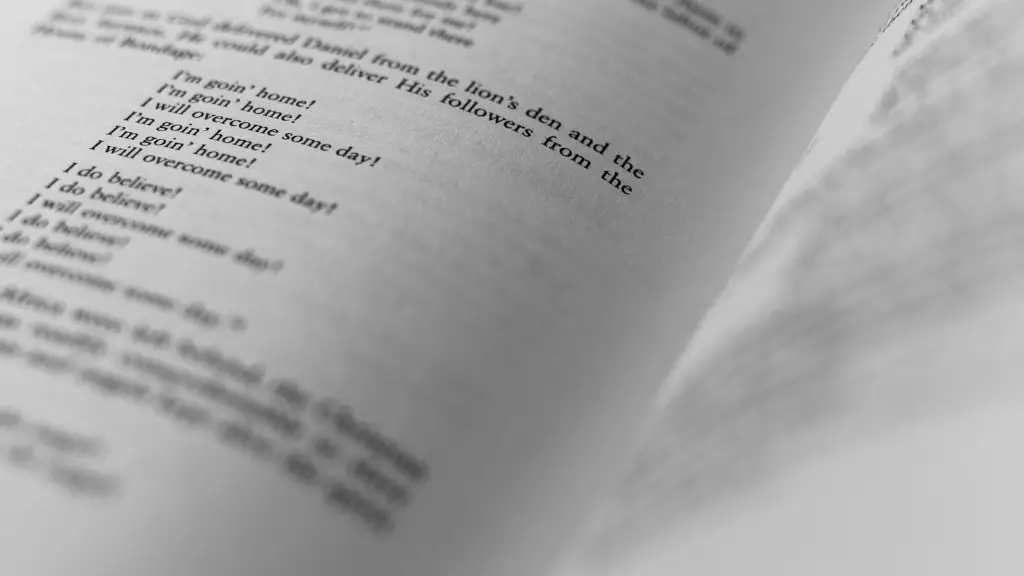Langston Hughes was an African-American poet, novelist, playwright, and columnist who was a significant figure during the Harlem Renaissance — an explosion of African-American literary, cultural, and political achievement. Hughes not only wrote expansive and impactful poetic works like “Mother to Son” and “The Negro Speaks of Rivers,” but he also penned powerful essays on cultural identity, social inequality, and the plight of African Americans. Langston Hughes is well known for his insightful works which explored the individual plight of African Americans in the early 20th century. By speaking out against racism and highlighting the unique African American experience, Hughes had a significant impact on the world.
From a young age, Hughes was surrounded by music and song as he grew up in racially segregated Kansas City, Missouri. His early exposure to the music of Black culture later impacted the tone and style of his writings. He began writing poems while still in high school, with his first poem eventually appearing in a magazine in 1921. Hughes was inspired by the works of French surrealists, and he adopted their techniques in several of his writings. He also found solace in writing as he was constantly moving with his father and grandmother during his childhood. Hughes began his work during the early years of the Harlem Renaissance and eventually become one of the most important figures of the movement.
Hughes provided a powerful representation of African American culture in his works, exploring the struggles and joys of Black life. His work was reflective of the African American experience, highlighting the unique heritage of African Americans in a way that was intimately personal yet widely impactful. His 1928 novel, “Not Without Laughter”, focused on themes of racism and alienation, and highlighted the importance of racial identity in a widespread context. Hughes also wrote “The Ways of White Folks”, a collection of stories exploring the intersections of white and Black cultures. This work revealed the realities of racism and showed the effects of prejudice on African Americans in a powerful, accessible way.
In addition to his fiction and poetry, Hughes wrote notable essays on the unequal social and political structures affecting African Americans. In his 1934 essay “Justice”, he spoke out against injustices in the criminal justice system, and in his 1932 essay “The Negro Artist and the Racial Mountain”, he articulated the importance of expressing one’s identity through artistic forms regardless of race. Hughes was an outspoken advocate of civil rights, and while he argued against segregation, he also encouraged African Americans to embrace their identity and proudly express their heritage. Through his writing, he provided the world with an invaluable account of life as a Black person in early 20th century America.
The works of Langston Hughes remain relevant and impactful today, as issues of racism and inequality continue to shape societal issues. His writings provide an important record of the challenges African Americans faced during his lifetime, and they can be used to educate and engage readers around the world. The impact of his work is best observed in the generations of African American authors he helped to inspire. Hughes is an important figure in history and literature who used his writing to seek justice and create hope.
Early Life, Career and Inspirations
Born in 1902 in Joplin, Missouri, Hughes quickly moved around the United States. He grew up in Kansas City, Missouri and in Cleveland, Ohio. Despite his rocky childhood, Hughes was dedicated to writing. He had a deep love for books and reading and wrote frequently. After high school, he continued his education at Lincoln University but moved back to Harlems and started his literary career.
Inspired by the jazz and blues music, Hughes echoed the beats and rhythms he heard in writing his poetry. His themes often revolved around race and the American experience. The early 1920s marked the start of an artistic movement known as The Harlem Renaissance. Hughes was an integral part of this “flowering of African-American art and literature”, and his poetry and short stories cut to the heart of the movement. As society became more accepting of African American culture, Hughes also began to experiment with forms and styles, such as surrealism. He also addressed broader issues of identity, inequality, and justice.
During his lifetime, Hughes’ work was highly acclaimed and read widely. His work was translated into several languages for a global audience. Through his writing, Hughes made Black identity visible in a time of profound racism and inequality. He also showed readers that African Americans had a unique cultural experience and a powerful historical legacy. His writing inspired many writers who followed him, and his works continue to live on.
Signature Works and Legacy
Hughes’ work featured strongly in the Harlem Renaissance, making an indelible impact on American culture and literature. His works, like “Mother to Son”, “The Negro Speaks of Rivers”, and “The Weary Blues”, established him as a masterful poet tackling themes of race, identity and justice. His short stories and novels, like “Not Without Laughter”, “The Ways of White Folks”, and “Fiction”, earned him praises from critics and readers alike.
Among his other works are plays, limericks, and children’s stories. However, Hughes is best known for his rich, poetic works. His poetry drew inspiration from popular music and everyday speech, capturing the African American vernacular in beautiful and powerful ways. Hughes’ works challenged readers to think deeply about racism, inequality, and prejudice. His works are not only timeless and emotionally moving but they inspired a whole generation of African American writers.
Hughes left a lasting impression on American literature. His works have earned him the nickname “The Poet Laureate of the Negro” and his famous poem “Dream Deferred” continues to resonate with people around the world. A true revolutionary, Hughes used his passion for writing to push for change and make his voice heard.
Awards and Honors
Hughes’ works earned him several awards and honors. In 1969, he was inducted into the American Academy and Institute of Arts and Letters. In 1974, he received the Spingarn Medal, the highest honor awarded by the NAACP. He was also awarded the Donaldson Literary Award in 1948, and the IB Bascom Prize for Poetry in 1959. Hughes was also the first African American to be honored with a special honor, the International Lenin Peace Prize, in 1960.
After Hughes’ death in 1967, he was honored with a banner on the wall of the National Portrait Gallery in Washington, D.C. His birthplace, the building located at 202 W 103rd Street in Manhattan, was designated as a National Historic Site in 1997. The Langston Hughes Library, which is located in his hometown of Joplin, Missouri, was built in his honor, and the Langston Hughes Center, a nonprofit organization dedicated to his legacy, was opened in Chicago, Illinois.
The enduring power of Hughes’ poetry and literature lives on, inspiring successive generations of African American writers and readers. His works continue to be studied in universities and schools across the globe, and his influence is felt in popular media, such as music, theater and film.
Conclusion
Through his powerful works and essays, Langston Hughes made an indelible impact on the world. His influences can be seen in writers, musicians, and artists who continue his legacy. Hughes used writing to speak out against injustices, express African American identity, and bring people together. His contributions to American literature, history, and vibrant culture will remain relevant and continue to inspire future generations.



